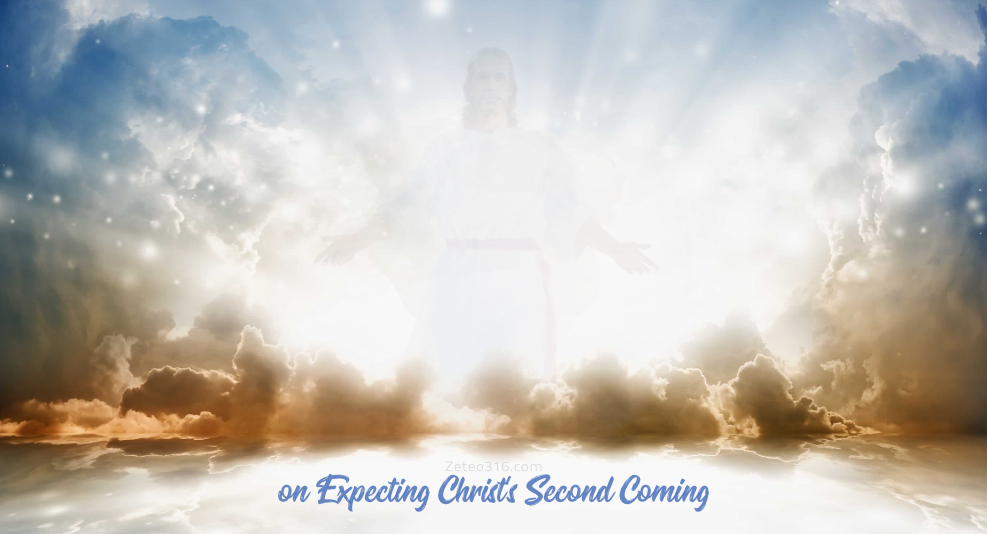
Charles Spurgeon gave Christians advice on expecting Christ’s Second Coming. He wrote that we should live as if it would happen today. Do we live it? The two quotes below come from Spurgeon’s Twelve Sermons on the Second Coming of Christ.
Spurgeon’s Advice
Oh, Beloved, let us try, every morning, to get up as if that were the morning in which Christ would come! And when we go up to bed at night, may we lie down with this thought, “Perhaps I shall be awakened by the ringing out of the silver trumpets heralding His coming. Before the sun arises, I may be startled from my dreams by the greatest of all cries, ‘The Lord is come! The Lord is come!’” What a check, what an incentive, what a bridle, what a spur such thoughts as these would be to us! Take this for a guide of your whole life – act as if Jesus would come during the act in which you are engaged – and if you would not wish to be caught in that act by the Coming of the Lord, let it not be your act. ~ Charles Spurgeon (Emphasis mine)
He also offered the following advice. I’m sure it is lost on many today,
Brethren, I would be earnest on this point, for the notion of the delay of Christ’s coming is always harmful, however you arrive at it, whether it be by studying prophecy, or in any other way… Do not, therefore, get the idea that the Lord delayeth his coming, and that he will not, or cannot come as yet. Far better would it be for you to stand on the tiptoe of expectation, and to be rather disappointed to think that he does not come… He will come in his own time, and we are always to be looking for his appearing. ~ Charles Spurgeon (Emphasis mine)
Spurgeon’s Eschatology & Further Thoughts
Spurgeon’s eschatology was informed by his Covenant Theology and Historic Premillennialism (Historicist). He wasn’t futuristic premil; wasn’t pretribulational, and didn’t believe in a future 70th week of Daniel. In fact Michael Reeves notes that he was wary of speculating on prophecy, and advised against it. See Spurgeon – on the Christian Life – Alive in Christ, by Mike Reeves
I say this because a proponent of a non-pretrib position corrected an article I wrote about Spurgeon’s advice regarding a Christian’s Imminent Mindset. He noted that Spurgeon was no pretribulationist (we agree), and that he didn’t hold to imminence (no one said he did).
People often read into a document what they expect to see. My essay was intended to address an article (hosted by this individual) which claimed that imminence-thinking was dangerous. Clearly Spurgeon and others (Edersheim, Andrew and Horatius Bonar, M’Cheyne, John Milne etc) disagree.
Regarding imminence we’re told that Spurgeon – in his Twelve Sermons – talked about signs and distress among the nations prior to Christ’s return. So he couldn’t hold to imminence. And yet Spurgeon still saw value on living with an imminent expectation of Christ’s return. That’s the point.
The “appeal to authority fallacy”
We’re told,
The fallacy of “the appeal to authority” is not a biblical principle of interpretation. While Spurgeon was a great pastor, our theological heroes are not infallible and do not possess perfect theology.
Absolutely! Yet proponents of this gentleman’s system consistently appeal to people like Spurgeon when criticizing pretribulationism. For an example see Marvin Rosenthal’s Rapture book (page 54).
I plan to write more on this “authority fallacy” in the near future.
Sadly, there’s a tendency for neo-posttribulationists to vigilantly hunt down anything mentioning imminence or pretribulationism. They act as if a person’s assurance of endurance under a future Antichrist is at stake, unless they repent of their rapture timing view. This attitude is tribal and myopic.
Maranatha!
